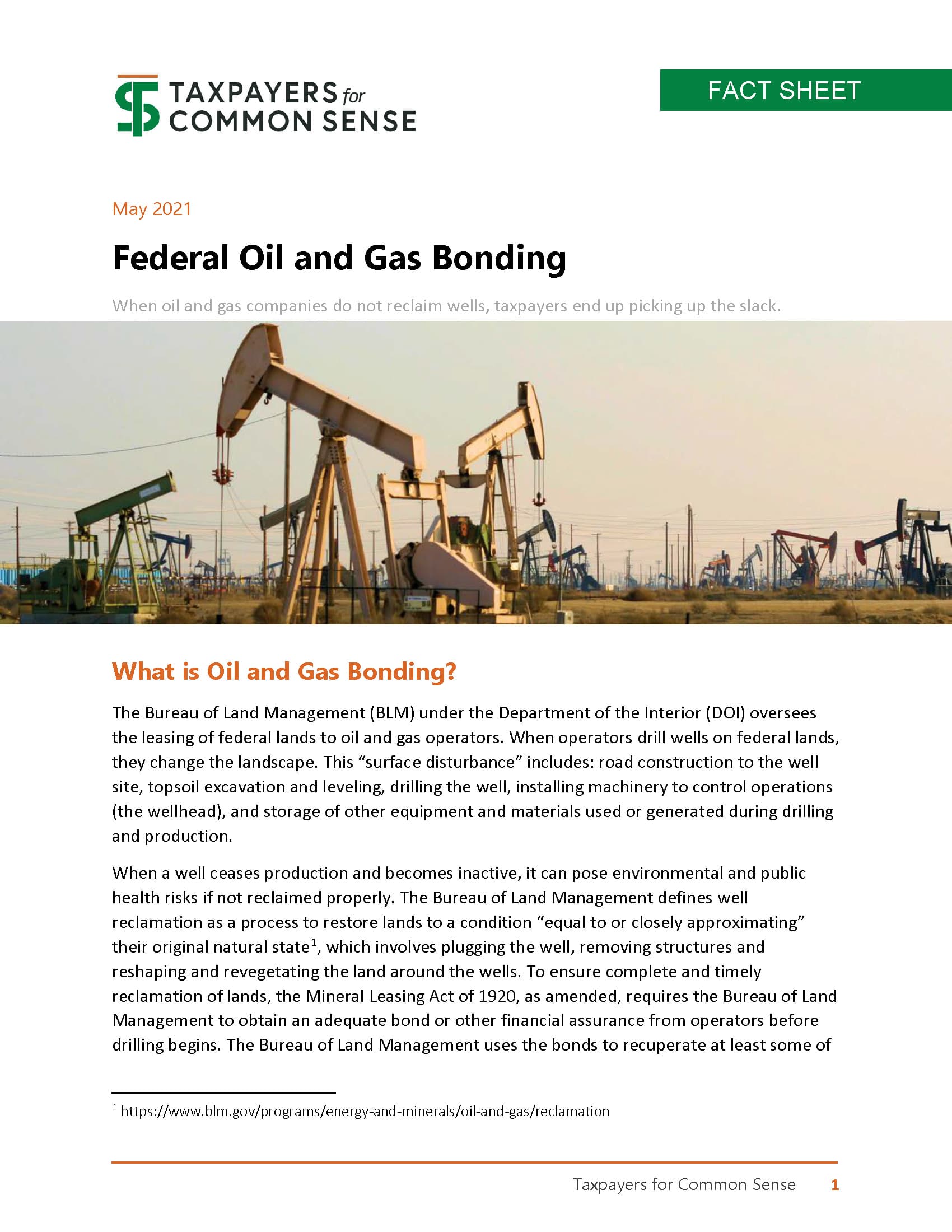Reform Federal Oil and Gas Bonding
Taxpayers shouldn’t be forced to pay for the messes oil and gas companies leave behind
Recent oil and gas bonding reform protects taxpayers from the financial, environmental, and health liabilities caused by abandoned wells.
Oil and natural gas companies drilling on federal land are required to plug (reclaim) their wells and clean up the surrounding sites after production ends. Wells that are not completely reclaimed in a timely manner pose serious environmental, safety, and public health threats. To guarantee the cleanup of these potentially hazardous and environmentally harmful sites, producers are required to post a bond before they start drilling. If the company abandons its wells on a federal lease, or goes bankrupt, the bond is used to cover the reclamation expenses.
Prior to reforms implemented this year, the required bond amounts had not changed for 60 years and failed to cover the full cost of cleanup, which meant taxpayers were forced cover these costs.
Operators could pay just $10,000 for a blanket bond covering all their wells on a single lease, $25,000 for a statewide blanket bond, or $150,000 for nationwide coverage. According to a Government Accountability Office report, the average value of bonds held by the Bureau of Land Management in 2019 was $2,122 per well, while reclamation costs range from $20,000 per well to $145,000 per well. In fact, 84 percent of bonds held in 2019, which covered 99.5% of wells, were not enough to cover even the lower estimate of $20,000 per well. As a result, taxpayers were left paying to reclaim hundreds of abandoned wells scattered across federal lands.
In April 2024, the Department of the Interior updated requirements for minimum bond amounts to better reflect the actual costs of reclaiming oil and gas wells, along with other much needed reforms. The recent rule raised the minimums for individual leases bonds to $150,000; statewide bonds to $500,000; and eliminated nationwide and unit bonds. These updated bonding minimums will better protect taxpayers and finally hold oil and gas companies accountable for cleaning up after themselves.
Bonding reform addresses the rising taxpayer, environmental, and health costs created by abandoned wells.
For more information on Oil and Gas Bonding and Orphaned Wells on Federal Lands, check out these additional TCS resources below:
- Abandoned Wells and Oil and Gas Bonding FAQ:
This FAQ includes all that you need to know about abandoned wells, orphaned wells, oil and gas bonding and how bonding reform can address cleanup liabilities. - Oil and Gas Bonding on Federal Land:
This fact sheet explains what oil and gas bonding is and why we need bonding reform - Oil and Gas Bonding and Orphaned Wells Reform—General Principles & Options
This issue brief underscores the need for oil and gas industry accountability and explores reform options to address current and future reclamation liabilities. - Orphaned Oil and Gas Wells –Background on the Current Debate
This issue brief discusses why current policies and taxpayer funding for cleaning up abandoned wells is not sustainable.

